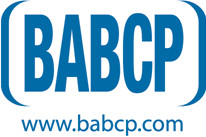Mind Path CBT offers virtual Cognitive Behavioural Therapy (CBT) accredited by the British Association for Behavioural and Cognitive Psychotherapies (BABCP). We specialise in treating anxiety disorders, including social anxiety, specific phobias, OCD and panic disorder, as well as depression, stress and trauma. Our approach is centred on delivering personalised care, tailoring each treatment plan to meet the unique needs, experiences, and goals of every individual.
With 20 years of experience in the NHS, Rhian has had the privilege of working across a variety of settings, gaining a broad understanding of mental health and well-being. Her journey has included research in old age psychiatry, which deepened her appreciation for the complexities of ageing and mental health. She is particularly passionate about supporting people with long-term health conditions, as well as those navigating challenges like depression, trauma, and anxiety disorders.
Our team stays updated with the latest CBT techniques through regular training and supervision, ensuring clients receive effective, evidence-based care. We aim to empower individuals to overcome mental health challenges and achieve lasting positive change.
At Mind Path CBT, your well-being comes first. Let us help you take the next step toward better mental health.
